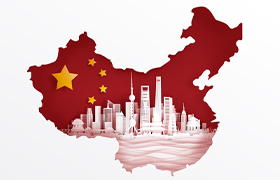
Metal Scrap Import Duty: A Predicament for Indian Casting Industry

Indian casting industry contributes about 10% of the global castings production and is highly consolidated with small and medium scale foundries. Metal casters predominantly depend on scrap for higher yield and reduced energy consumption. India lacks in the availability of sufficient domestic metal scrap to meet the demands and quality requirements; hence it depends on metal scrap imports from developed nations. The recent levy of 2.5% import duty is expected to deter the import of scrap and adversely impact the domestic casting industry.
To support the domestic sponge iron manufacturers, Government of India levied 2.5% import duty on metal scrap. Along with Indian rupee depreciation, it depicts the import of metal scrap as a spendthrift for castings production. This whitepaper aims to highlight the impact of imposed duty on Indian casting industry. Besides, the scenario to the availability of scrap in India along with its potential opportunities and issues on other domestic resources has been dealt in detail. The effects on Indian casting industry with current feedstock practices and cost effective opportunities have also been conferred.
From the procurement standpoint, it is recommended that the Indian metal casters must evaluate the available high quality scrap providers.?? The supply base of metal scrap is highly dominated by unorganized sector. It still holds a favorable speculation to the domestic metal casters in the procurement of imported metal scrap, despite of levied import duty and currency depreciation. It provides end product with increased quality and reduced process cost comparing to the consumption of base raw materials for castings production. For long term sustainability and to compete with other castings producing nations, it is necessary for domestic players to concentrate much on their intrinsic factors.
Related Insights:
View All
Get more stories like this
Subscirbe for more news,updates and insights from Beroe







